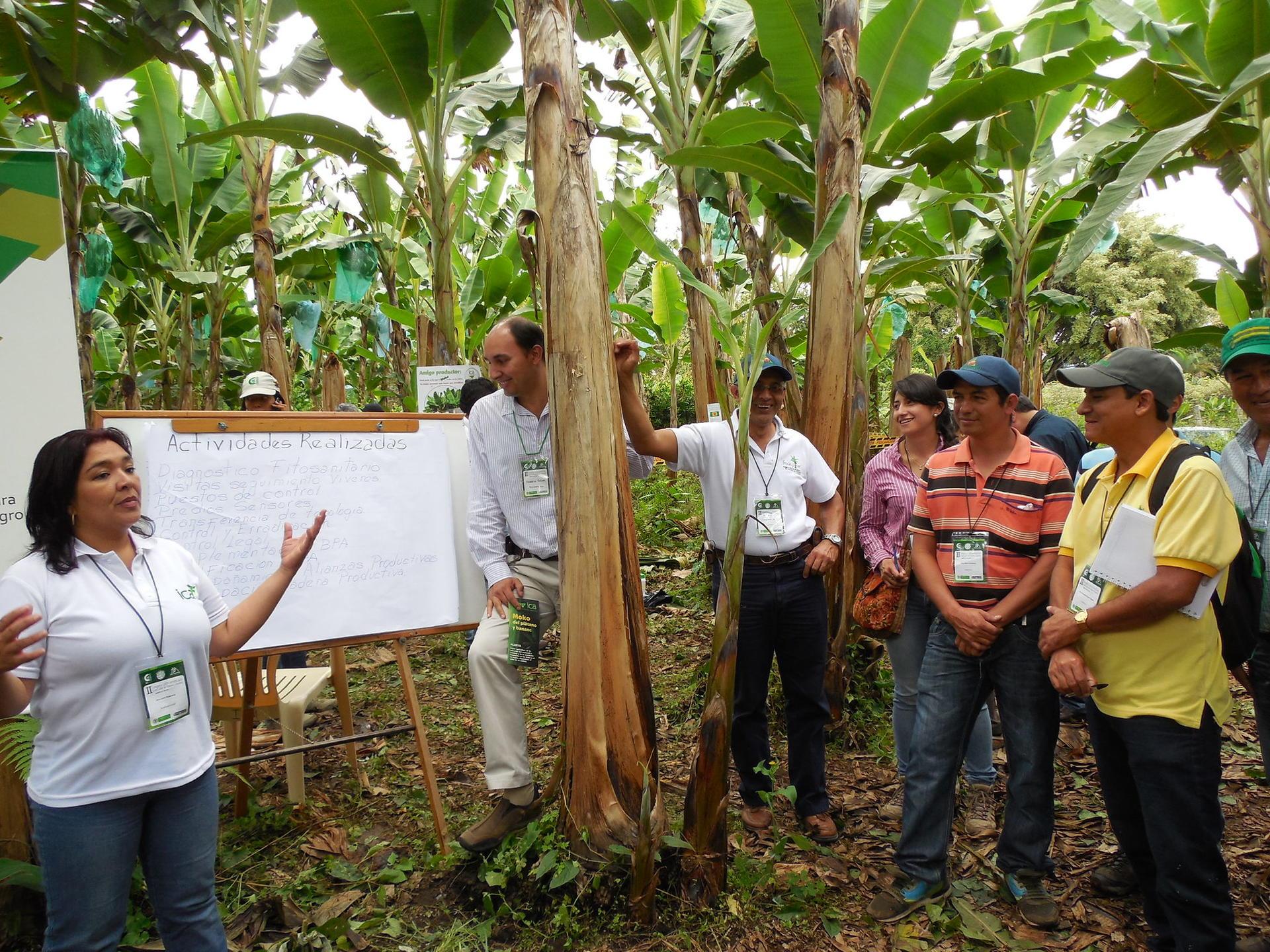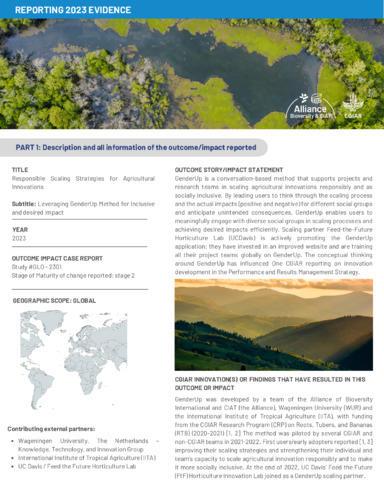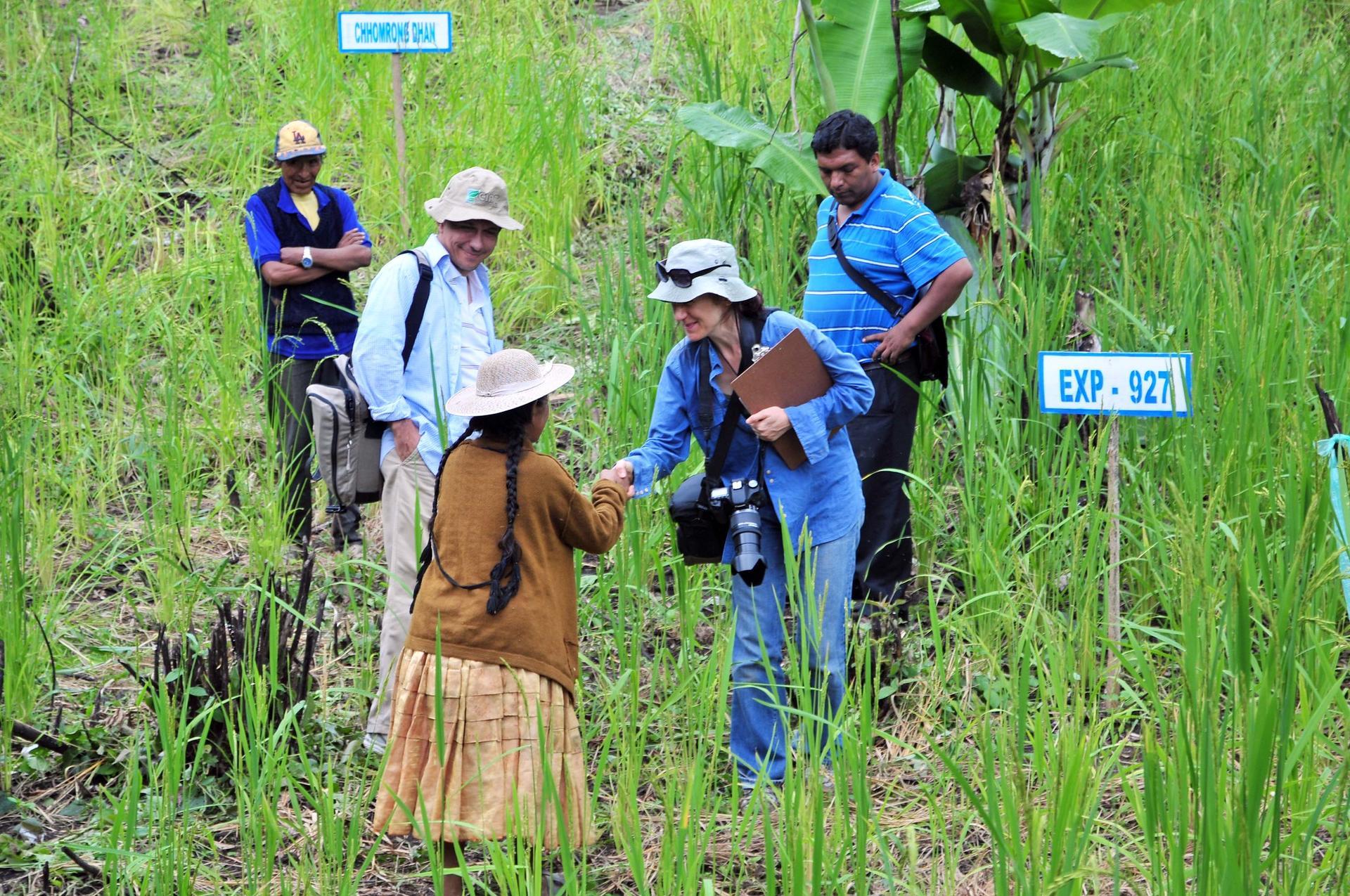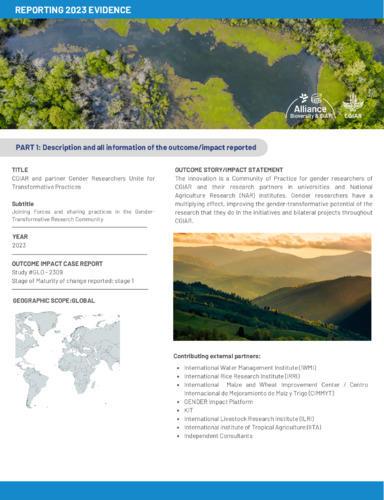Our Approach to Gender Research at the Alliance
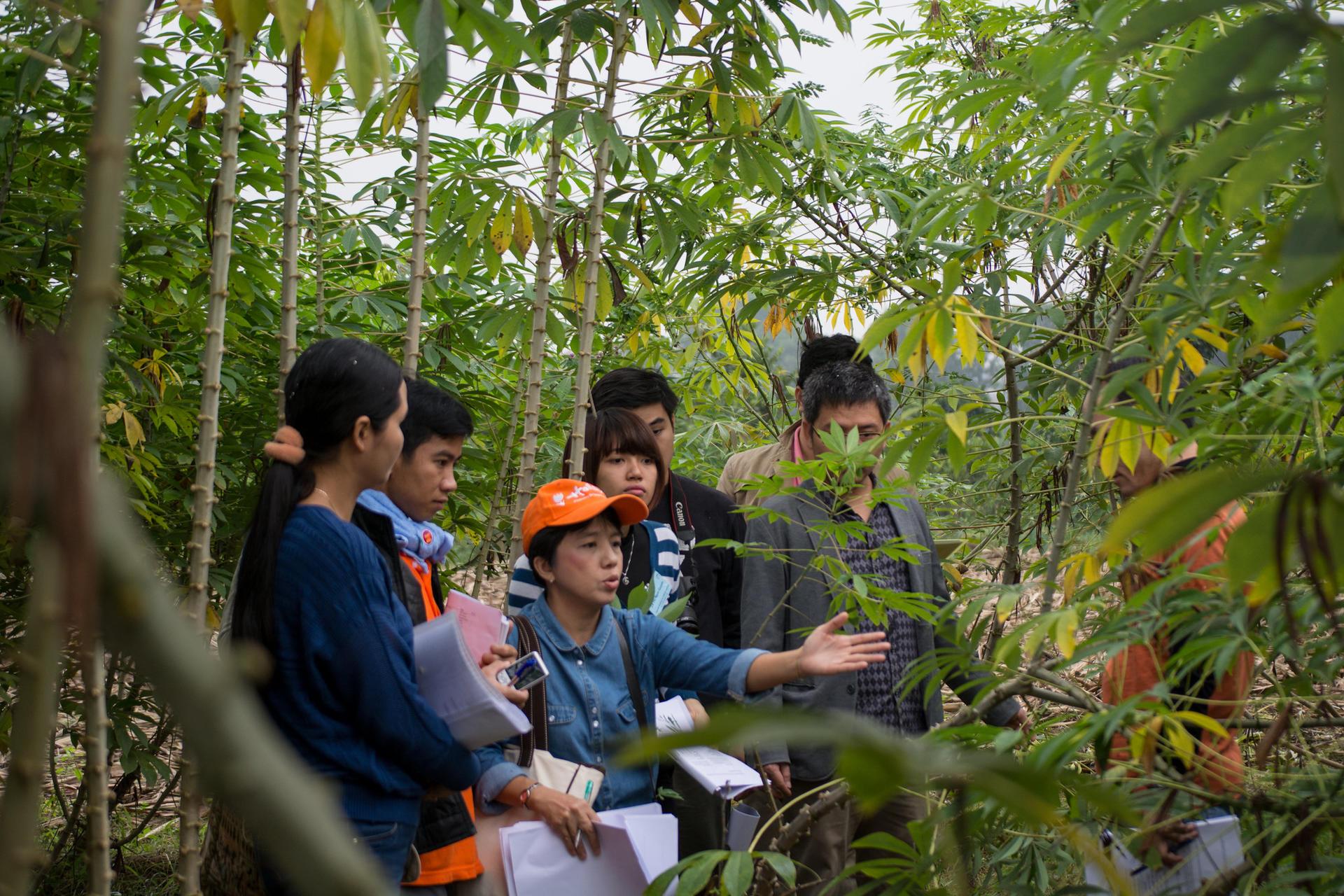
Alliance gender and social inclusion research involves developing, testing, and refining strategies, approaches, methodologies, and frameworks to advance gender equality and social inclusion in food, land and water systems. These include participatory research approaches, empowerment frameworks, gender-transformative approaches, gender-responsive scaling strategies, and innovative mixed methods (both qualitative and quantitative). This work is demand-driven, inter- and trans-disciplinary, often comparative, and methodologically innovative. We integrate different disciplines and knowledge to co-generate new research approaches for transformative results.
The Alliance’s gender and inclusion research focuses on three pathways for achieving more equitable outcomes:
-
collecting and using high-quality data disaggregated by sex, age and other relevant identity factors, and the implementation of rigorous qualitative and quantitative gender research,
-
scaling successful interventions through collaboration with governments, civil society, and the private sector, and
-
designing gender-transformative approaches to reduce gender inequalities at the community and national levels by addressing discriminatory gender norms and policies.
Alliance researchers contributed to a 2023 FAO report titled ‘The Status of Women in Agrifood Systems’, which identified these approaches as cornerstones of improving gender equality in this sector.
HIGH-QUALITY DATA AND RESEARCH
We generate evidence to inform the development of strategies to eliminate gender inequality in food systems. We lead the Alliances Module of the CGIAR GENDER Impact Platform, which strengthens strategic partnerships and capacity for gender research across CGIAR and beyond. Through a Gender and Social Inclusion Nexus Enabler group, Alliance gender researchers offer knowledge-sharing sessions on methodologies that integrate gender considerations into all Alliance research areas.
The Gender and Social Inclusion Nexus Enabler
Is a forum for knowledge sharing and collaboration amongst Alliance researchers who are interested in addressing gender and social inclusion through their research and development activities.
The forum offers members the opportunity to learn about the challenges, methods and progress in gender and social inclusion research. The Gender and Social Inclusion Nexus Enabler organizes learning events, coordinates the Alliance gender research programs, and collaborates on papers and proposals.
The Nexus Enabler gives more external visibility to the Alliance’s gender research while gathering new ideas from gender researchers outside the Alliance.
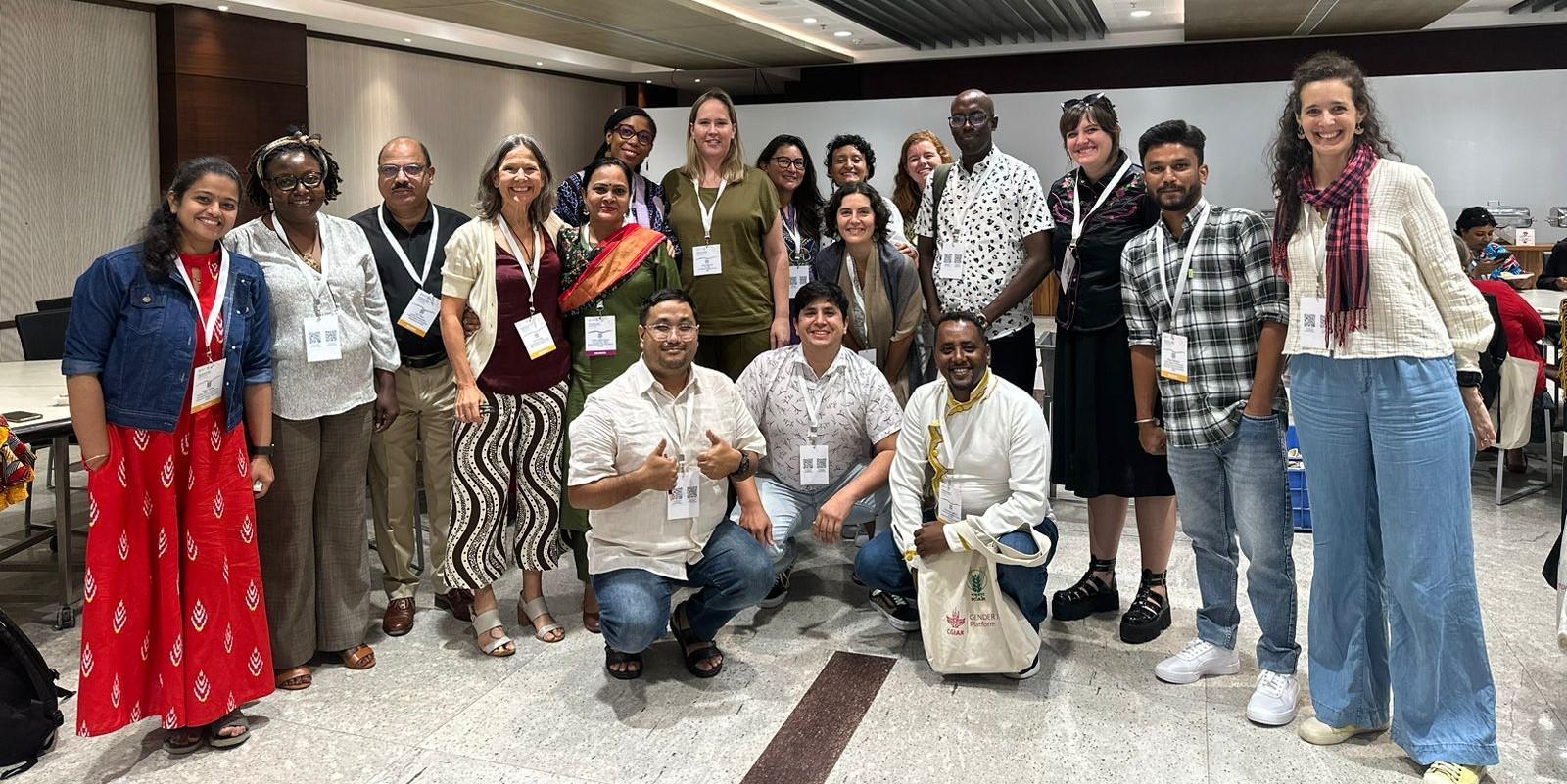
SCALING
The Alliance has been central to developing the gender-sensitive scaling tool called GenderUp. This tool supports the development of gender-responsive action plans for scaling innovations into food systems policy and programs.
GenderUp
GenderUp is a discussion-based method that supports teams to upscale agricultural innovations in a gender-responsive and socially inclusive way.
GenderUp guides innovation teams to:
-
identify diversity among the intended users of the agricultural innovations from a social inclusion perspective,
-
create an upscaling strategy that anticipates and mitigates unintended consequences, ensuring that project participants benefit equally from the interventions, and
-
guide brainstorming conversations for teams to make their upscaling strategy more inclusive.
After completing the GenderUp process, innovation teams should have a finalized scaling strategy that is gender responsible and socially inclusive. Discover more about the GenderUp methodology here.
GENDER-TRANSFORMATIVE APPROACHES
Gender-transformative approaches go beyond tackling the symptoms of gender inequality (such as lower pay or less access to agricultural inputs), and seek to address the root causes of inequality, such as norms, institutions, and policies that discriminate against women. The Alliance co-leads a community of practice on gender-transformative research methodologies under the CGIAR GENDER Impact Platform, trying out these innovative approaches in cycles of reflection and action, with researchers across CGIAR and beyond.
GENNOVATE
Several Alliance researchers were involved in the groundbreaking GENOVATE study, which highlighted the importance of gender norms in agricultural innovation. GENNOVATE (2014–2018) was a global comparative research initiative that examined how gender norms influence whether and how women, men and young people innovate in agricultural and natural resource management. Lead researchers from eight CGIAR centers used GENNOVATE to conduct 137 case studies in 26 countries, across three continents, focusing on the underlying causes of gender gaps in innovation.
Experience in rolling out the GENNOVATE methodology prompted a series of reflections on how to advance more socially equitable research (Elias et al. 2018; 2020; CGIAR-IEA 2017). These reflections have influenced current CGIAR gender research and inspired the approach of the Community of Practice on gender-transformative methodologies. Several Alliance researchers were deeply involved and continue to develop and reflect on the methodologies and approaches.

